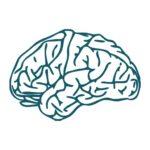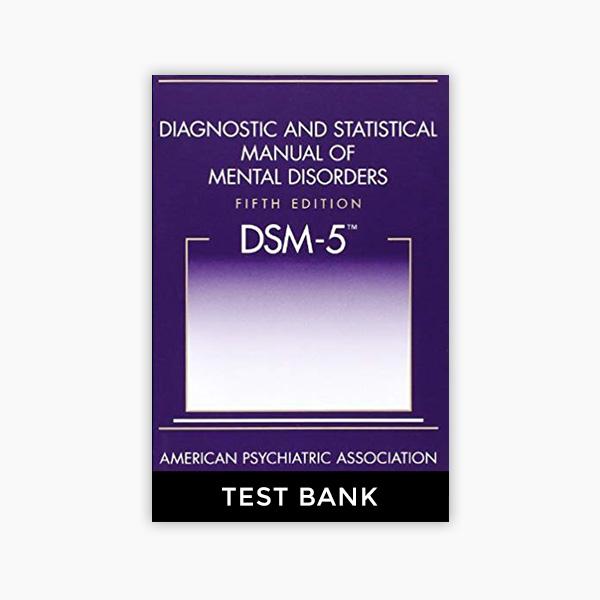Do you know what the DSM test is? Have you taken it? If not, then this post will provide information about the DSM test and how to take it.
Contents
- 1 What Is DSM Test?
- 2 Types Of DSM Test
- 3 Sample Questions Of DSM Test
- 3.1 For PTSD
- 3.2 For Neurodevelopmental Disorders
- 3.3 For Substance Abuse Disorder
- 3.4 For Major Depressive Episode
- 3.5 For Major Depressive Disorder In Adolescence
- 3.6 For Generalized Anxiety Disorder
- 3.7 For Panic Disorder With Agoraphobia
- 3.8 For Panic Disorder Without Agoraphobia
- 3.9 For Social Anxiety Disorder
- 3.10 For Obsessive-Compulsive Disorder
- 3.11 For Bipolar Disorder
- 3.12 For ADHD
- 3.13 For Schizophrenia
- 3.14 For Separation Anxiety Disorder
- 3.15 For Social Phobia
- 3.16 For Eating Disorders
- 4 Experts Opinion On DSM Test
- 5 Conclusion
What Is DSM Test?
The DSM test is a diagnostic tool used to identify mental health disorders. The DSM (Diagnostic and Statistical Manual of Mental Disorders) is published by the American Psychiatric Association (APA), and it provides a classification of mental disorders.
What It Is Used For?
The first step in treatment is to diagnose the mental health disorder, so this test can be used for diagnosing several disorders. The results from this type of testing can help make an accurate diagnosis. Further, it determines what kind of treatment will work best. It’s also important for ruling out other potential causes for the symptoms that are being experienced.
In short: The DSM test can be used for diagnosing mental health disorders, determining the severity of symptoms, and to assist in treatment planning.
What Are The Signs You Need To Take DSM Test?
Several signs indicate you might need the test:

- If your child is experiencing mental health problems;
- There’s family history, or
- It has been recommended by other medical professionals.
How To Take DSM Test?
There are several steps you need to take before taking the DSM test:
- Talk with your doctor about whether or not the DSM test is right for you;
- Find a mental health professional who can administer the test; and
- Review the questions that will be asked.
NOTE: The test is completed in person by a professional while providing information about your current mental health status and any treatment you may be receiving already. The questions on this type of testing will provide insight into how well certain parts of your brain function along with other disorders that could potentially be experienced.
What Are Some Important Tips For Taking DSM Test
Here are some important tips to keep in mind when taking the DSM test:
- Be honest and open with your mental health professional;
- Answer all questions truthfully; and
- Take your time.
Who Evaluate Results Of The DSM Test?
The DSM test is evaluated by a team of experts in the mental health field. The results of the DSM test can help to diagnose an individual with one or more mental disorders. The evaluation of the DSM test is used to develop a treatment plan that will be most beneficial for the individual.
How Accurate Are The Test Results?
The DSM test is quite accurate when it comes to diagnosis – but other things like family history and the behavior of others around you may play a role in misdiagnosing someone with multiple disorders.
Ruling out other potential causes for the symptoms is also important to determine if a person has a specific disorder or not. For example, it’s possible to have anxiety but no depression – so making sure all possibilities are ruled out will ensure an accurate diagnosis.
NOTE: The accuracy of the DSM test results will vary depending on the type of test administered and the individual taking it. However, research has shown that the DSM test is reliable and valid.
Types Of DSM Test
There are several types of DSM tests:

- Structured Clinical Interview (SCID-I/P),
- Structured Clinical Interview for Children and Adolescents (Kiddie-SDC),
- Computerized Psychiatric Diagnostic Screening Questionnaire,
- Mini-International Neuropsychiatric Interview (M.I.N.I.),
- Schedule for Affective Disorders and Schizophrenia for School-Age Children (K.A.S.E.-W),
- Diagnostic Interview Schedule for DSM Disorders,
- Child and Parent Versions (DISC-P/DC),
- Kiddie Schedule for Affective Disorders and Schizophrenia Present and Lifetime version(KSADS)
Sample Questions Of DSM Test
The following are some sample questions from the DSM-IV:
For PTSD
- Have you ever had any experience where you felt that your life or other people’s lives were in danger?
- Do these experiences still cause distress when they come to mind even though the event is long over?
- Have there been times when you have reacted as if it were happening now, with intense fear, helplessness, or horror (as indicated by three or more of the following)?
- Avoidance of thoughts, feelings, or conversations associated with the traumatic event
- Inability to remember important aspects of the event
- Distorted cognitions and beliefs about the cause or consequences of the trauma
- The negative effect (e.g., feeling numb, detached, hopeless) associated with reminders of the event
For Neurodevelopmental Disorders
Does your child have significant problems with:
- Concentrating or staying on task?
- Responding to questions?
- Following directions and completing tasks, such as homework assignments?
- Remembering what he/she learns in school (for example forgetfulness)?
- Showing significant difficulties doing things like copying from the board at school?
- Are these problems getting in the way of your child’s ability to do well in school?
For Substance Abuse Disorder
- Have you ever felt that your life would be better if you used alcohol or drugs less often?
- Do friends and family think that you should cut down on use?
- Has anyone else noticed a problem with your drinking or drug use – for example, getting into trouble at work or with the law?
- Do you need to drink more alcohol or take more drugs to feel the desired effects?
- Have you tried to stop using alcohol or drugs, but couldn’t do it?
For Major Depressive Episode
- During the past month, have you felt sad most of the time?
- Have you lost interest in activities you used to enjoy?
- Do you feel like a failure or that life isn’t worth living?
- Has your weight changed significantly, either up or down?
- Have you been sleeping too much or too little?
- Is there something about your appearance that has changed – for example, have you lost or gained weight?
- Are you so tired that you can’t get out of bed in the morning, even when something important is planned for that day?
- Do you have trouble concentrating on things like reading and TV – for example, do your thoughts keep wandering to memories about the past or plans for tomorrow?
- Have these feelings lasted for more than two weeks?
- Is this the first time you’ve experienced these feelings, or have they been a problem in the past?
For Major Depressive Disorder In Adolescence
- During the past two weeks have you been feeling depressed most of the time nearly every day?
- Do you feel unhappy or empty?
- Do you have trouble eating, sleeping, and enjoying life the way that you used to?
- Have your feelings lasted for a long time – more than two weeks?
- During this time, has there been anything in your life that might be causing these problems? Is something bothering you?
- Do you feel that life isn’t worth living?
- Would others worry about how you are feeling if they knew the truth?
For Generalized Anxiety Disorder
Have you been anxious or worried most days for more than six months about several different things, like work problems, money, family issues, or health?
- Do you find it hard to control your worry?
- Do you have physical symptoms related to anxiety, like trembling, sweating, or a racing heart?
- Are these problems making it hard for you to do the things you want or need to do in life – like go to work or school, see friends, or take care of your home?
- Do you know that these problems aren’t likely to go away on their own and get worse over time if they are not treated?
- Have any of these symptoms been a problem for you in the past six months, but went away on their own before coming back again right now?
- Does this cause you a lot of stress and make you feel upset?
- Do these problems cause any kind of trouble for others, like your friends or family members?
For Panic Disorder With Agoraphobia
- Do you fear that something terrible will happen when you are away from home or other familiar places because there might not be anyone to help you?
- Is it you avoid going to places where help might not be available, like crowds or on buses and trains?
- Do physical symptoms like a racing heart or dizziness make it hard for you to leave home?
- Are there situations that cause intense fear even though they are unlikely to happen, like being in a high place?
- Have you been avoiding these situations for at least a month?
- Does any of this bother or upset your family members, friends, co-workers, teachers, etc.?
For Panic Disorder Without Agoraphobia
- During the past month have you been afraid that there might be something seriously wrong with your heart or chest because they would beat so hard and fast that you would think they were going to explode?
- Do you feel like there is a tight band around your chest, or do you get pain between the shoulder blades when these feelings happen?
- Does this cause it hard for you to breathe normally – does breathing seem harder than normal because of how bad the anxiety makes you feel?
- Do these feelings make it hard for you to go about your daily life – like work or school?
- Have any of these symptoms been a problem for you in the past six months, but went away on their own before coming back again right now?
- Does this cause you stress and upset you?
- Do they cause any trouble for others, like your friends or family members?
For Social Anxiety Disorder
- Do you feel very anxious and uncomfortable in social situations – like meeting new people, talking to strangers, or being judged by others?
- Do these feelings make it hard for you to do the things you want or need to do in life – like go to work or school, see friends, or take care of your home?
- Are you so anxious that it feels impossible to be yourself when you’re around other people?
- Do these problems bother or upset your family members, friends, co-workers, teachers, etc.?
For Obsessive-Compulsive Disorder
- Do you have thoughts that keep coming back over and over again even though you don’t want them to?
- Are these thoughts make you feel upset or anxious?
- Do you try to get rid of the thoughts by doing things over and over again, like washing your hands or checking the locks on doors?
- Are these behaviors take up a lot of your time and make it hard for you to do the things you want or need to do in life – like go to work or school, see friends, or take care of your home?
- Do they cause any trouble for others, like your family members or friends?
For Bipolar Disorder
- Have you had a manic episode in the past?
- Are there times when it is hard for you to go back and forth between feeling happy or excited and sad, irritable, hopeless, etc.?
- Do these moods last for at least four days – like two weeks total – with an average of one good day for every bad one?
- Is it hard to carry on with your daily life during these times – like work or school?
- Do these episodes cause any trouble for others, like your family members or friends?
For ADHD
- Are you often forgetful and have a really hard time paying attention to what other people are saying?
- Do you have a lot of trouble sitting still and tend to move around a lot, like tapping your feet or playing with your hands?
- Are these problems causing difficulty in your work or school life – like having trouble keeping up with what’s going on, making careless mistakes, or not being able to finish tasks?
- Do they cause any trouble for others, like your family members or friends?
For Schizophrenia
- Do you see or hear things that other people don’t?
- Do these thoughts make it hard for you to do the things you want or need to do in life – like go to work or school, take care of your home, have family and friends?
- Are there times when their voices are so loud they keep you from having a good night’s sleep or doing the things that need to be done?
- Do these problems bother or upset your family members, friends, co-workers, teachers, etc.?
For Separation Anxiety Disorder
- Do you feel very anxious when away from your parents or other caregivers, like at school or with friends?
- Do these feelings make it hard for you to do the things you want or need to do in life – like go to work or school, see friends, or take care of your home?
- Are you so anxious that it feels impossible to be yourself when you’re around other people?
- Do these problems bother or upset your family members, friends, co-workers, teachers, etc.?
For Social Phobia
- Do you feel extremely anxious or afraid in social situations?
- Do these feelings make it hard for you to do the things you want or need to do in life – like go to work or school, see friends, or take care of your home?
- Are there specific types of people that you’re anxious around, like authority figures or people you don’t know well?
- Do these problems bother or upset your family members, friends, co-workers, teachers, etc.?
For Eating Disorders
- Do you have a fear of gaining weight?
- Does this fear cause you to alter your eating habits to avoid the feared outcome (e.g., refusal to eat certain foods, consuming fewer calories than at other times)?
- If yes, do these behaviors occur almost every day for three months or more, and are they associated with the following:
- Preoccupation with body weight and shape, which may include constant weighing or measuring of one’s self unnecessarily.
- Excessive anxiety about gaining weight – even though underweight.
- Withdrawal from usual activities because they involve eating (e.g., going to a party where there will be food).
- Marked distress when expected to consume food.
Experts Opinion On DSM Test
There is a great deal of research that supports the use of the DSM test for diagnosing mental health disorders. However, it is important to keep in mind that every individual has a unique experience of mental health problems and no test can define you as an individual.
Conclusion
The DSM test can be used to diagnose mental disorders; however, the accuracy of the results will depend on who administers it. And also on who takes the test and what type of disorder is being diagnosed. The test is reliable and valid, however, and can be a valuable tool for mental health professionals. If you are experiencing problems with your emotions or thoughts, it might be time to take the DSM test.
For more information, please contact MantraCare. Online therapists are increasingly important in today’s world because they provide a convenient and accessible way for people to receive mental health support and treatment. Visit MantraCare If you are searching for “therapist near me”. Book a trial Online therapy session


